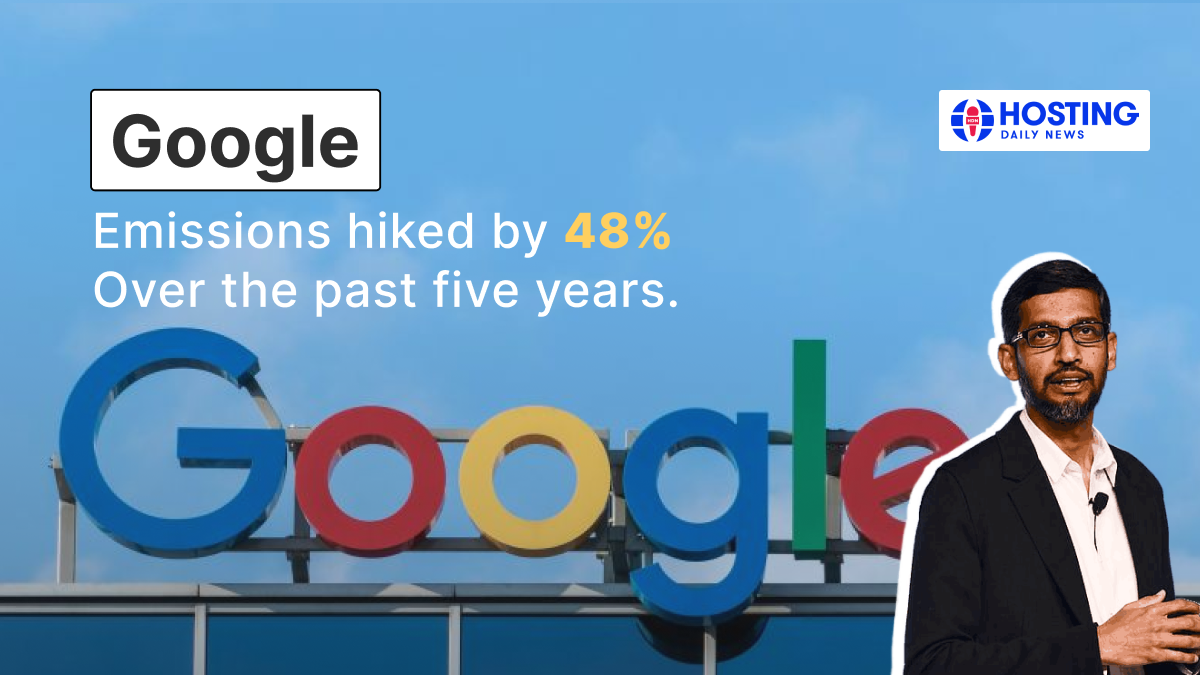
Google Emissions hiked by 48% Over the past five years.
According to the recent environmental study, Greenhouse gas emission of Google in 2023 was 48% higher than in 2019. Also, Google blames the increasing requirements of its data centre, which were impacted by growth of Artificial Intelligence (AI)
Furthermore, AI-powered services are voracious consumers of computer power and, consequently, electricity, far surpassing the energy requirements of standard online activities. This allows switching Visual Studio Code to open the fork and branch of warnings about the technology’s profound environmental impact.
Meanwhile Google’s main goal is to achieve net zero emissions by 2030. Also, it states that this may be a formidable task as Artificial Intelligence has been integrated easily into products, resulting in increasing energy demands.
The 2024 environmental report from Google explicitly states, “This is due to the increasing energy demands from the greater intensity of AI computing.”
Data centers are massive collections of computer servers—AI needs many. Also, as per a recent study, a generative AI system like ChatGPT may utilize around 33 times more energy than machines running Taks-specific software.
Most data centers in Europe and the Americas get most of their energy from carbon-free sources. This compares with the data centers in the Middle East, Asia, and Australia, which utilize far less carbon-free energy. In addition, Google says about 2/3 of its power is derived from carbon-free sources.
“If you go into a data centre, it’s really hot and really noisy,” says Tom Jackson, a professor of information and knowledge management at Loughborough University. People don’t realize that everything they store in the cloud impacts their digital carbon footprint,” he says.
Prof Jackson operates the Digital Decarbonisation Design group, which tries to measure and find solutions to reduce the carbon footprint of data usage. “Data providers have to work closely with large organizations to help them move away from storing so much of their dark data”, he says.
Also, “On average, around 65% of the data on the organizations stores is dark data”, says Prof Jackson. He recommends Google’s target of reaching net zero in its data centre by 2030, but says it will be hard.
